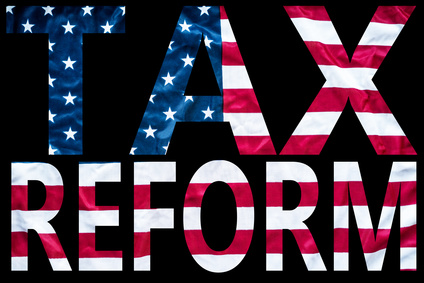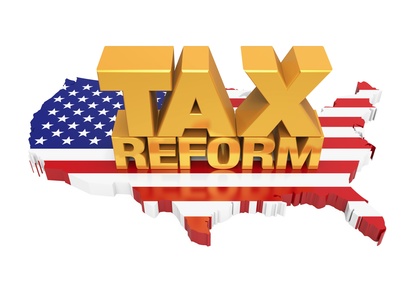[DISPLAY_ULTIMATE_SOCIAL_ICONS]
The new tax reform law, commonly called the “Tax Cuts and Jobs Act” (TCJA), is the biggest federal tax law overhaul in 31 years, and it has both good and bad news for taxpayers.
Below are highlights of some of the most significant changes affecting individual and business taxpayers. Except where noted, these changes are effective for tax years beginning after December 31, 2017.
Individuals
· Drops of individual income tax rates ranging from 0 to 4 percentage points (depending on the bracket) to 10%, 12%, 22%, 24%, 32%, 35% and 37% — through 2025
· Near doubling of the standard deduction to $24,000 (married couples filing jointly), $18,000 (heads of households), and $12,000 (singles and married couples filing separately) — through 2025
· Elimination of personal exemptions — through 2025
· Doubling of the child tax credit to $2,000 and other modifications intended to help more taxpayers benefit from the credit — through 2025
· Elimination of the individual mandate under the Affordable Care Act requiring taxpayers not covered by a qualifying health plan to pay a penalty — effective for months beginning after December 31, 2018
· Reduction of the adjusted gross income (AGI) threshold for the medical expense deduction to 7.5% for regular and AMT purposes — for 2017 and 2018
· New $10,000 limit on the deduction for state and local taxes (on a combined basis for property and income taxes; $5,000 for separate filers) — through 2025
· Reduction of the mortgage debt limit for the home mortgage interest deduction to $750,000 ($375,000 for separate filers), with certain exceptions — through 2025
· Elimination of the deduction for interest on home equity debt — through 2025
· Elimination of the personal casualty and theft loss deduction (with an exception for federally declared disasters) — through 2025
· Elimination of miscellaneous itemized deductions subject to the 2% floor (such as certain investment expenses, professional fees and unreimbursed employee business expenses) — through 2025
· Elimination of the AGI-based reduction of certain itemized deductions — through 2025
· Elimination of the moving expense deduction (with an exception for members of the military in certain circumstances) — through 2025
· Expansion of tax-free Section 529 plan distributions to include those used to pay qualifying elementary and secondary school expenses, up to $10,000 per student per tax year
· AMT exemption increase, to $109,400 for joint filers, $70,300 for singles and heads of households, and $54,700 for separate filers — through 2025
· Doubling of the gift and estate tax exemptions, to $10 million (expected to be $11.2 million for 2018 with inflation indexing) — through 2025
Businesses
· Replacement of graduated corporate tax rates ranging from 15% to 35% with a flat corporate rate of 21%
· Repeal of the 20% corporate AMT
· New 20% qualified business income deduction for owners of flow-through entities (such as partnerships, limited liability companies and S corporations) and sole proprietorships — through 2025
· Doubling of bonus depreciation to 100% and expansion of qualified assets to include used assets — effective for assets acquired and placed in service after September 27, 2017, and before January 1, 2023
· Doubling of the Section 179 expensing limit to $1 million and an increase of the expensing phaseout threshold to $2.5 million
· Other enhancements to depreciation-related deductions
· New disallowance of deductions for net interest expense in excess of 30% of the business’s adjusted taxable income (exceptions apply)
· New limits on net operating loss (NOL) deductions
· Elimination of the Section 199 deduction, also commonly referred to as the domestic production activities deduction or manufacturers’ deduction — effective for tax years beginning after December 31, 2017, for noncorporate taxpayers and for tax years beginning after December 31, 2018, for C corporation taxpayers
· New rule limiting like-kind exchanges to real property that is not held primarily for sale
· New tax credit for employer-paid family and medical leave — through 2019
· New limitations on excessive employee compensation
· New limitations on deductions for employee fringe benefits, such as entertainment and, in certain circumstances, meals and transportation
More to consider
This is just a brief overview of some of the most significant TCJA provisions.… Continue Reading...














